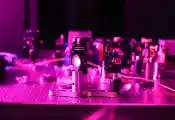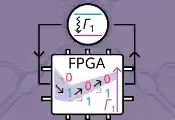NIST Releases First 3 Finalized Post-Quantum Encryption Standards
GAITHERSBURG, August 13, 2024 -- The U.S. Department of Commerce’s National Institute of Standards and Technology (NIST) has finalized its principal set of encryption algorithms designed to withstand cyberattacks from a quantum computer.
Researchers around the world are racing to build quantum computers that would operate in radically different ways from ordinary computers and could break the current encryption that provides security and privacy for just about everything we do online. The algorithms announced today are specified in the first completed standards from NIST’s post-quantum cryptography (PQC) standardization project, and are ready for immediate use.
The three new standards are built for the future. Quantum computing technology is developing rapidly, and some experts predict that a device with the capability to break current encryption methods could appear within a decade, threatening the security and privacy of individuals, organizations and entire nations.
The standards — containing the encryption algorithms’ computer code, instructions for how to implement them, and their intended uses — are the result of an eight-year effort managed by NIST, which has a long history of developing encryption. The agency has rallied the world’s cryptography experts to conceive, submit and then evaluate cryptographic algorithms that could resist the assault of quantum computers. The nascent technology could revolutionize fields from weather forecasting to fundamental physics to drug design, but it carries threats as well.
In 2015, NIST initiated the selection and standardization of quantum-resistant algorithms to counter potential threats from quantum computers. After assessing 82 algorithms from 25 countries, the top 15 were identified with global cryptographers' assistance. These were categorized into finalists and alternative algorithms, with draft standards released in 2023. Cybersecurity experts are now encouraged to incorporate these new algorithms into their systems.
Encryption tools rely on complex math problems that conventional computers find difficult or impossible to solve. A sufficiently capable quantum computer, though, would be able to sift through a vast number of potential solutions to these problems very quickly, thereby defeating current encryption. The algorithms NIST has standardized are based on different math problems that would stymie both conventional and quantum computers.
NIST also continues to evaluate two other sets of algorithms that could one day serve as backup standards.
One of these sets consists of three algorithms designed for general encryption but based on a different type of math problem than the general-purpose algorithm in the finalized standards. NIST plans to announce its selection of one or two of these algorithms by the end of 2024.
The second set includes a larger group of algorithms designed for digital signatures. In order to accommodate any ideas that cryptographers may have had since the initial 2016 call for submissions, NIST asked the public for additional algorithms in 2022 and has begun a process of evaluating them. In the near future, NIST expects to announce about 15 algorithms from this group that will proceed to the next round of testing, evaluation and analysis.




































